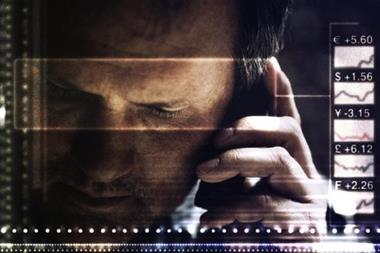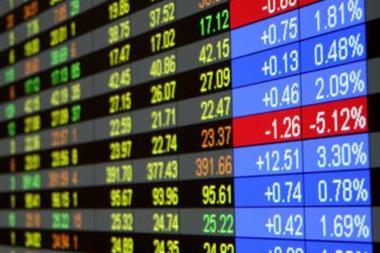Organised criminals accounted for nearly 90 % of fraud by value in 2007, according to a KPMG study
The UK’s fraud problem shows no sign of abating, with over £1bn of fraud coming to court in 2007 according to a new study.
The number of cases coming to court fell to 197 from 277 in 2006, but this remains a higher number than seen in any year prior to 2005.
With fears that the credit crunch will lead to a period of protracted economic slowdown, there is the potential that personal and corporate pressures may fuel fraudulent behaviour, warns KPMG Forensic in its fraud barometer research.
Hitesh Patel, partner at KPMG Forensic, said: “Levels of fraud continue to remain disturbingly high. Organised gangs have been more active than ever, with a proliferation in VAT frauds, ID thefts and other forms of white collar crime, to the tune of a huge £889m or nearly 90 % of fraud by value. The sophistication of organised fraud in the UK is certainly extremely concerning. More fraud cases have been coming to court in recent years than previously, but one fears that this is just the tip of the iceberg. 2007 saw a respite in prosecutions for frauds against banks and other corporates, but now that the economy looks set to slow, we could see more people attempting frauds to ease their financial burdens. As companies tighten their belts in the harsher conditions and take a closer look at their operations and related expenditure, it is highly possible that a greater number of frauds may be detected.”
The main findings of the report include:
Organised criminals accounted for nearly 90 % of fraud by value in 2007 (£889m), with the Government agencies having been the primary target (£833m).
This represents an enormous jump from 2006, when professional gangs accounted for £221m of fraud.
Gangs have also aggressively exploited ID theft to perpetrate scams, making false benefit or tax credit claims. One husband and wife team claimed benefits for no fewer than eight adults and forty six children at a one bed flat in London, defrauding the public purse of over £1.1m. Other gangs targeted the transport system, organising large scale frauds on fake bus and tube passes.
“The sophistication of organised fraud in the UK is certainly extremely concerning.
Hitesh Patel, partner at KPMG Forensic
Whereas the Government suffered heavily in 2007, financial institutions and other corporates enjoyed a fall in the value of frauds against them. £37m of fraud against banks came to court in 2007, substantially down from over £140m in 2006, while commercial business suffered £24m of fraud compared to £81m a year earlier.
Employees and management carried out roughly the same number of frauds (36 and 34 respectively), again down from 2006 (54 and 48). Once again though, management inflicted significantly more damage on their companies with their frauds totalling £54m, double the £27m that employees perpetrated.
Though levels overall were down, there was a notable number of accounting frauds – 21 of them representing £20m of fraud. Some internal fraudsters were extremely well-trusted by their company – such as the company accountant whose Buckinghamshire firm paid for a champagne reception before he left on his honeymoon. While he was away, they discovered a £700,000 hole in their finances which he had been siphoning away to fund a lavish lifestyle.
Another FD of company in London manipulated the company’s finances to embezzle some £2m which she used to buy a string of properties, luxury cars, and even a £100,000 kitchen which was featured in a glossy magazine.
A Northern Ireland man routinely removed barcodes on items in a hardware superstore and replaced them with his own false barcodes so that he paid less then the items were worth.
While London and the South East was once again the dominant centre for fraud, with some 65 % by value (£655m) and over 35 % of the cases (77), other parts of the country also saw significant levels of activity. There was some £200m of fraud in the North West (30 cases) and £117m was recorded in the Midlands (31 cases).
Hitesh Patel concluded: “Given the developing economic conditions, companies and individuals need to be more alert than ever to the fraud threat. At a company level, they should bolster their routine monitoring and oversight processes with the use of data analytical tools to identify any unusual or suspicious trends. As individuals meanwhile, we all need to be vigilant and protect our personal data. The bottom line is that the cost of fraud goes beyond the financial. The emotional and social impacts are often forgotten.”


















No comments yet